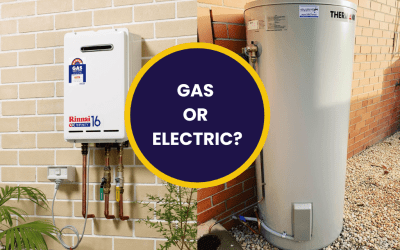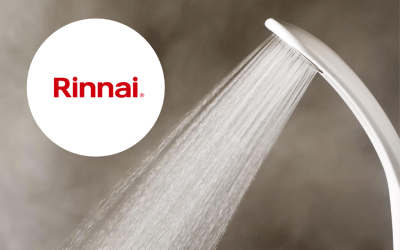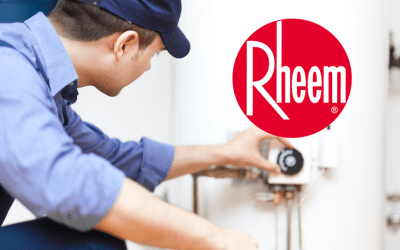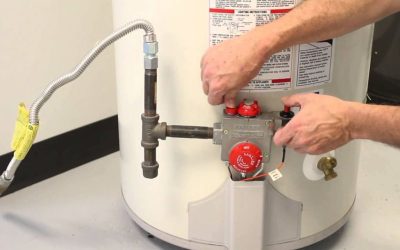Shopping for a new hot water system? Or just standing (and shivering) in your birthday suit, saying to yourself ‘How long does a hot water system take to heat up?’
Perhaps your system ran out of water during a shower, or maybe the energy source has been off. And if you’re in the market for a new hot water technology type, the heat-up wait time can easily be as important as energy efficiency, hot water system size, and installation costs. So what’s the answer? How long does hot water take to heat up?
Well, it depends!
In our exclusive guide, we break down everything you need to know about how long does it take for a hot water system to heat up – because it depends very much on the type of hot water system you have. So let’s get straight into how long your shivering birthday suit wait will be, and outline the factors that influence the delay:
1. Electric & gas storage hot water systems
Storage types of electric hot water systems work by heating water in a tank and keeping it hot until needed – and it’s the same exact story if you’re connected to mains gas or LPG bottles.
If your system has run out of hot water simply because you’ve run the storage tank dry, you’ll have to wait for it not only to re-fill, but to reheat.
HEATING TIME:
- How long does hot water system take to heat up of the electric-powered/storage variety? Generally, you’re talking 2 to 4 hours to fully heat a tank of water from cold.
- And how long does gas hot water take to heat up? It’s typically faster for heating water, so for most systems, expect 30 to 60 minutes to heat a full tank of water.
HEATING TIME FACTORS:
- Tank size: Larger tanks (250L and more) obviously take longer to heat than smaller ones.
- Element wattage: Systems with a higher wattage heating element will heat water faster. And for gas, the efficiency of the burner is key, so make sure to ask your installer.
- Thermostat setting: The hotter the temperature you’ve set, the longer it takes to reach that level.
- Gas pressure & supply quality: If your gas supply is low or the pressure is inconsistent, it can slow down the heating process. Regular maintenance of your gas lines and ensuring your gas supply is reliable will help your system operate efficiently.
2. Electric & gas instantaneous (Continuous Flow) systems
Whether it’s running on electricity or gas, instant hot water systems only heat water after you turn on the hot tap – with no storage tank in play at all. These systems are known for being energy-efficient but be aware that they may have limitations in flow rate.
HEATING TIME:
- How long for a hot water system to heat up if it’s electric-instant? The answer is in the name – pretty much instantly! We’re talking mere seconds, as long as it has power and is working at full steam.
- Gas instant hot water systems also deliver hot water almost immediately – typically within 10-15 seconds after turning on the tap.
HEATING TIME FACTORS:
- Time spent unused: If your unit hasn’t been used for a while, it might take a few extra seconds for the water to reach the desired temperature. But we’re still only talking seconds.
- Multiple taps running: If you’ve got multiple taps running at the same time, the water temperature and the flow rate can be affected.
- Distance to outlet: If the water needs travel a long distance from the unit to your tap, there may be an extra (slight) delay in delivery.
- Pressure & burner: Gas pressure and burner efficiency also impact the consistency of hot water.
3. Heat pump hot water systems
Heat pump hot water systems are highly energy-efficient and environmentally friendly, as they use heat from the air to warm the water. But while they’re great for reducing energy costs, they generally take longer to heat water compared to other systems. These systems rely on ambient air temperature to operate, which can impact performance, especially in colder climates.
HEATING TIME:
- Heat pumps can take anywhere from 2 to 6 hours to fully heat a tank of water from cold, depending on the air temperature and system design.
HEATING TIME FACTORS:
- Ambient temperature: Heat pumps work best in warm climates. When the air temperature is lower, the heating process can take longer as the system has to work harder.
- Tank size: As with storage systems, larger tanks take longer to heat.
- Boost mode: Many heat pump systems include an electric booster element, which can speed up the heating process during high-demand periods or colder weather.
- System design: Newer, more efficient heat pump models may heat water faster compared to older or less advanced units.
4. Solar hot water systems
Solar hot water systems rely on energy from the sun to heat water, making them one of the most eco-friendly options available. However, their performance heavily depends on sunlight availability, and they often come with backup systems for cloudy days or night-time use.
HEATING TIME:
- On sunny days: Water can heat up within 30 to 90 minutes, depending on system capacity and sunlight intensity.
- On cloudy days or at night: Systems with a gas or electric booster can heat water in 1 to 2 hours.
HEATING TIME FACTORS:
- Sunlight availability: On bright, sunny days, the system works quickly and efficiently. But during overcast weather, the system may rely on backup boosters, extending the heating time.
- Tank size & solar collectors: The size of your tank and the number/efficiency of your solar panels affect how quickly water heats. Larger tanks and smaller panels may take longer.
- Backup booster: Electric or gas boosters help maintain hot water supply during low sunlight periods, but their efficiency depends on the backup system’s power source and design.
- Location: Homes in sunnier regions will experience faster heating times compared to those in areas with less solar exposure.
When do hot water systems heat up?
While you can see the differences between technologies above, all hot water systems typically start heating up as is needed. Storage systems, for instance, begin reheating immediately after hot water is drawn from the tank, while instant systems heat water only when you turn on a tap.
Solar systems, on the other hand, rely on daytime sunlight but use boosters outside of daylight hours. And heat pump systems heat water more gradually, and are most efficient during warmer parts of the day – although many models include a booster to speed up the process when needed.
What affects how long hot water takes to heat up?
Also common between many of the hot water technology types are many of the factors influencing how long does it take for hot water to come back after a shower or from a cold start:
- System size: Larger tanks take longer to heat than smaller ones.
- Energy source: Gas heats water faster than electricity, while heat pumps and solar systems may take more time.
- System efficiency: Older systems or those with build-up (like sediment in tanks) take longer to heat water.
- Water demand: If multiple taps or showers are running, heating times can increase, especially for storage or instant systems with limited flow rates.
Give us a call for expert assistance & service
Are you dealing with hot water problems or need help choosing, installing, or maintaining a hot water system? The friendly team at S&J Hot Water Brisbane is always right here, just around the corner from you, and more than willing to help! From much-needed advice to hot water servicing and repairs to complete new hot water installations and replacements and beyond, rest assured we specialise in all types of hot water systems.
Give us a shout right here at S&J Hot Water Brisbane today to get your hot water steaming hot once again!







